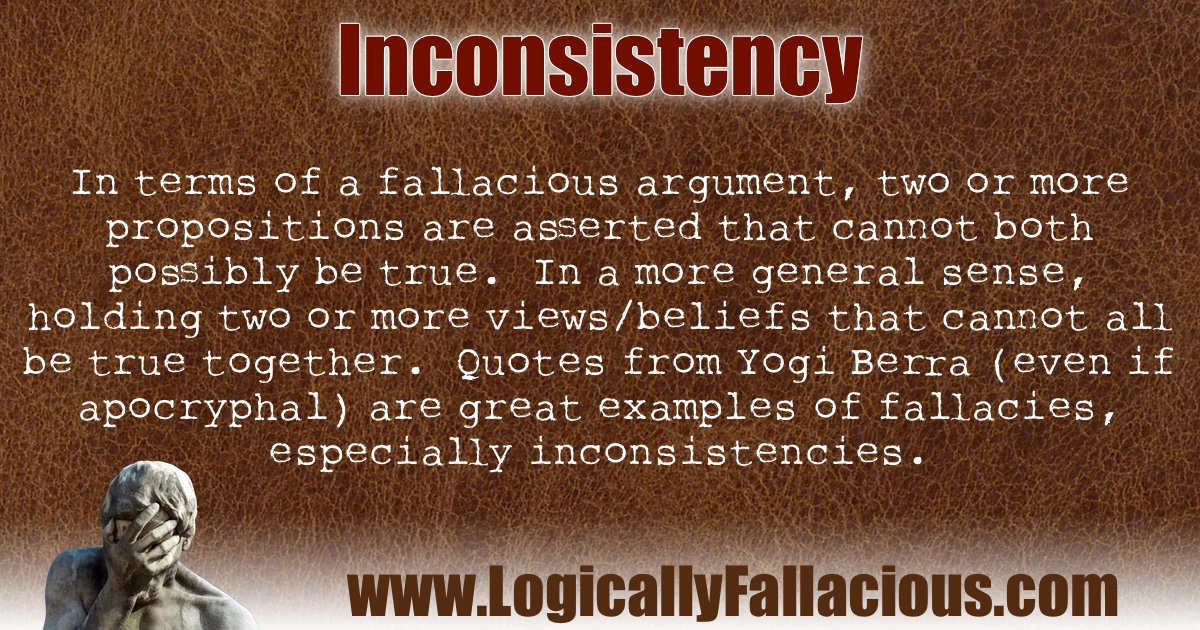(also known as: internal contradiction, logical inconsistency)
Description: In terms of a fallacious argument, two or more propositions are asserted that cannot both possibly be true. In a more general sense, holding two or more views/beliefs that cannot all be true together. Quotes from Yogi Berra (even if apocryphal) are great examples of fallacies, especially inconsistencies.
Logical Form:
Proposition 1 is logically inconsistent with proposition 2.
Proposition 1 and proposition 2 are both asserted or implied to be true.
Example #1:
"I never said most of the things I said." - Yogi Berra
Explanation: I know this requires no explanation, and I don't mean to insult your intelligence, but for consistency's sake, I will explain. If he had said those things, then he said them, which is a contradiction to his claim that he never said them. This is both an internal inconsistency and a logical inconsistency. It is internal because the inconsistency is contained within the statement itself; it doesn't require any other premises or arguments.
Example #2:
"Nobody goes there anymore. It's too crowded." - Yogi Berra
Explanation: Again, I apologize, but here it goes... If "nobody" went there, then it could not possibly be crowded, since "crowded" implies too many people are there. This is both an internal inconsistency and a logical inconsistency.
Exception: One needs to be able to explain how the beliefs are not inconsistent.
Tip: Think about your beliefs. Are there any inconsistent with each other? Any inconsistent with how you act and what you do?

This a logical fallacy frequently used on the Internet. No academic sources could be found.